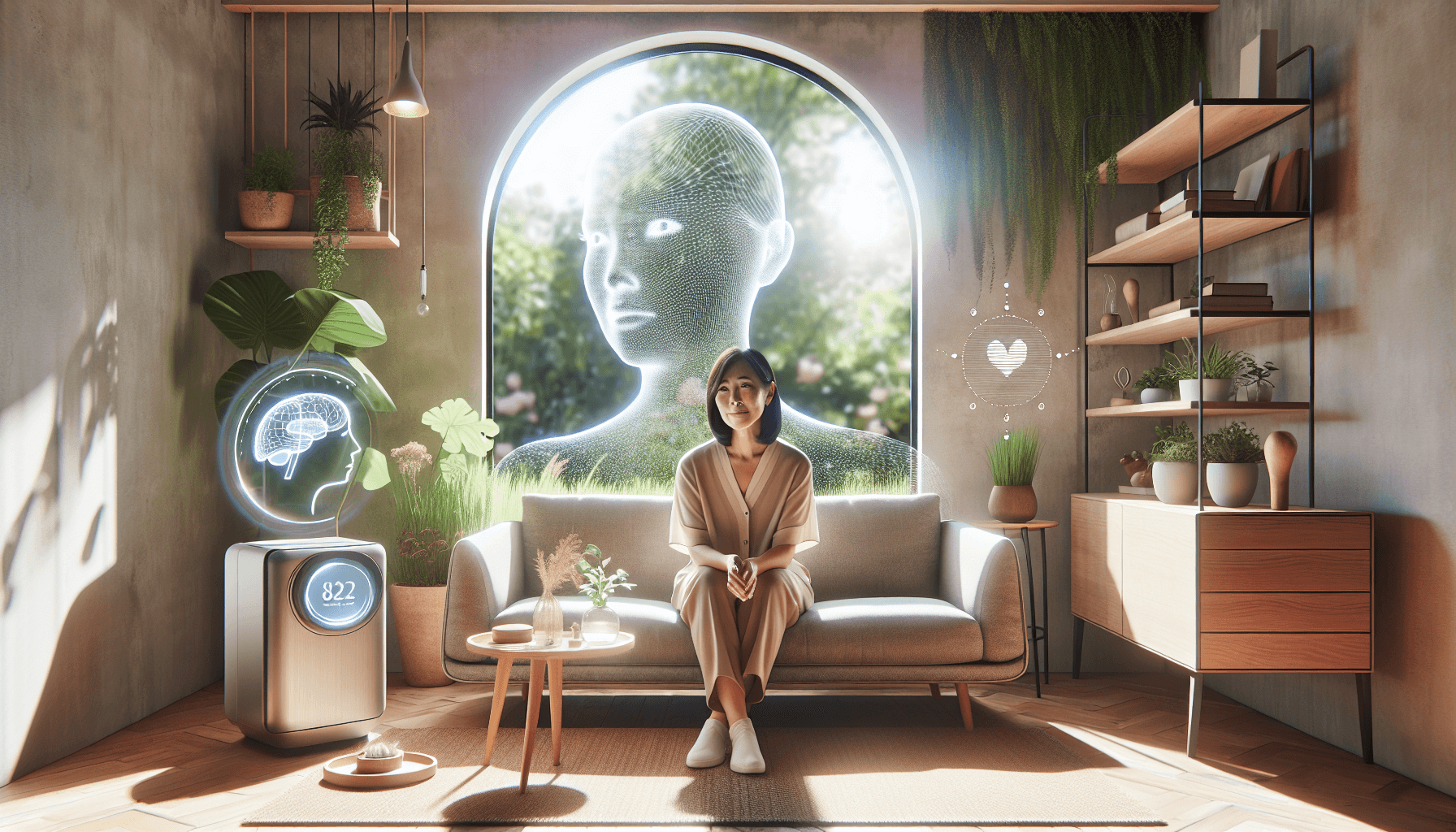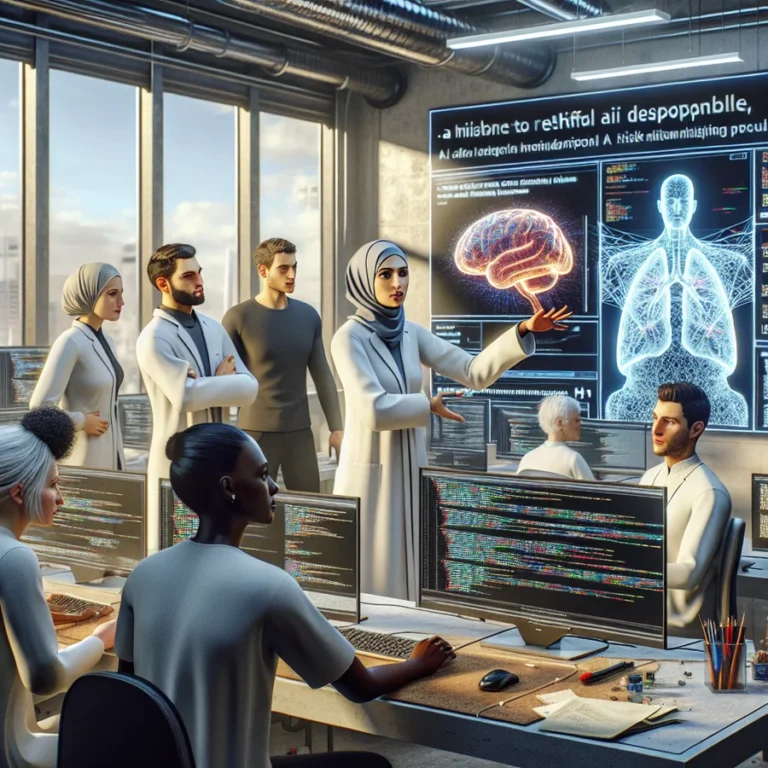AI in Mental Health: Emerging Trends and Applications
Are you curious about how technology is changing mental healthcare? Artificial intelligence (AI) is rapidly emerging as a powerful tool. It’s transforming how we approach mental health, from diagnosis to treatment. This guide explores the latest trends and applications of AI in mental health, offering insights into its potential and challenges.
AI in mental health is not about replacing human connection. It’s about enhancing it. AI can assist professionals, improve access to care, and personalize treatment in ways never before possible. Let’s dive into this exciting field and see what the future holds.
The Rise of AI in Mental Health
Mental health conditions affect millions worldwide. Access to care is often limited by cost, stigma, and a shortage of professionals. AI in mental health offers innovative solutions to these challenges. It can provide support, monitor progress, and personalize treatment plans.
Why is AI gaining traction in mental health?
- Increased need: Mental health disorders are on the rise globally.
- Limited access: Many people lack access to affordable and convenient care.
- Technological advancements: AI offers new tools for diagnosis and treatment.
Note: AI is not a replacement for human therapists. It’s a tool to augment their capabilities and extend their reach.
How AI is Transforming Mental Healthcare
AI in mental health is being used in various ways to improve care. These applications range from analyzing patient data to providing virtual therapy sessions. Let’s explore some key areas where AI is making a difference.
AI-Powered Diagnosis and Assessment
AI algorithms can analyze vast amounts of patient data. This includes electronic health records, questionnaires, and even social media activity. By identifying patterns, AI can help clinicians diagnose mental health conditions more accurately and efficiently.
For example, machine learning can predict the risk of developing mental health conditions. It can also classify disorders with impressive accuracy, ranging from 63% to 92% depending on the AI technique and data quality.
AI Chatbots and Virtual Therapists
AI chatbots are providing accessible and convenient mental health support. These virtual therapists can offer advice, track progress, and help manage symptoms. Popular examples include Woebot, Replika, and Wysa.
Reminder: Chatbots are not a substitute for professional therapy. They can be a helpful tool for self-management and support, but should not replace human interaction when needed.
These chatbots use Natural Language Processing (NLP) to simulate human conversations. They can provide personalized therapy based on Cognitive Behavioral Therapy (CBT) and other proven methods. Want to build your own chatbot? Check out this DeepSeek Chatbot tutorial.
Personalized Treatment Plans with AI
AI in mental health enables the creation of personalized treatment plans. By analyzing patient data, AI can recommend tailored interventions. This approach considers individual needs and maximizes the effectiveness of treatment.
For instance, AI can analyze brain images to create individualized treatment programs for schizophrenia. This helps doctors determine which treatments will be most effective for each patient.
AI for Enhanced Patient Engagement
AI is improving patient engagement in mental healthcare. Chatbots can answer questions, schedule appointments, and provide health education. Mobile apps and reminder systems can also help patients adhere to medication and treatment plans.
Note: AI-powered tools can identify at-risk patients and automate outreach messages, ensuring that individuals receive timely support.
Emerging Trends in AI and Mental Well-being
The field of AI in mental health is constantly evolving. New trends are emerging that promise to further transform the landscape of mental healthcare. Let’s look at some of these exciting developments.
Passive Symptom Tracking
Smartphones are equipped with sensors that can track various data points. These include movement patterns, social interactions, and vocal tone. AI can analyze this data to determine a person’s real-time state of mind.
In the future, apps may be able to recognize changes in behavior patterns. This could signal an episode of mania, depression, or psychosis before it occurs. This allows for early intervention and support.
AI-Driven Data Collection for Research
AI can gather data from many people simultaneously. This increases researchers’ understanding of mental health. It also helps them develop better interventions. This widespread data collection can lead to significant breakthroughs in the field.
AI in Mental Health: Improving Thinking Skills
Cognitive remediation apps help people improve their thinking skills. These apps are often designed for people with serious mental illnesses. They can help correct distorted or unhelpful ways of thinking.
Challenges and Ethical Considerations
While AI in mental health offers tremendous potential, it also presents challenges. Ethical considerations must be addressed to ensure responsible and beneficial use of this technology.
Some key concerns include:
- Privacy: Protecting sensitive personal information is crucial.
- Bias: AI algorithms can perpetuate existing biases if not carefully designed.
- Effectiveness: Ensuring that apps are supported by scientific evidence.
- Regulation: Establishing industry-wide standards for evaluating quality.
Reminder: Transparency and collaboration between researchers are essential for the safe and practical implementation of AI in mental health. In line with responsible AI use, it’s vital to consider AI safety development and ethical guidelines.
The Future of AI in Mental Health
The future of AI in mental health is bright. As technology advances, we can expect even more innovative applications. AI will likely play an increasingly important role in screening, diagnosis, and treatment.
However, it’s important to remember that AI is a tool. It should be used to enhance human connection and empathy, not replace them. By addressing the challenges and ethical considerations, we can harness the full potential of AI to improve mental healthcare for all. For those interested in the broader impact of AI, consider exploring how AI is optimizing impact for nonprofits.
Key Takeaways for AI in Mental Health
- AI offers new ways to improve access to mental healthcare.
- AI can personalize treatment plans and enhance patient engagement.
- Ethical considerations must be addressed to ensure responsible use.
Conclusion
AI in mental health is revolutionizing the way we approach mental well-being. From AI-powered diagnosis to virtual therapists and personalized treatment plans, the possibilities are vast. By embracing these advancements responsibly, we can create a future where mental healthcare is more accessible, effective, and compassionate.
FAQs About AI in Mental Health
How can AI help with mental health?
AI can analyze patient data, provide virtual therapy, personalize treatment plans, and enhance patient engagement.
Is AI a replacement for human therapists?
No, AI is a tool to augment their capabilities and extend their reach. It enhances human connection and empathy, not replaces them.
What are the ethical considerations of using AI in mental health?
Key concerns include privacy, bias, effectiveness, and regulation. Transparency and collaboration are essential.
What are some examples of AI-powered mental health tools?
Examples include Woebot, Replika, Wysa, and BioBase, which offer virtual therapy and symptom tracking.
How accurate is AI in diagnosing mental health conditions?
AI algorithms can detect an array of mental illnesses with 63-92% accuracy, depending on the AI technique and data quality. To improve this accuracy, you might consider fine-tuning DeepSeek on relevant datasets.






